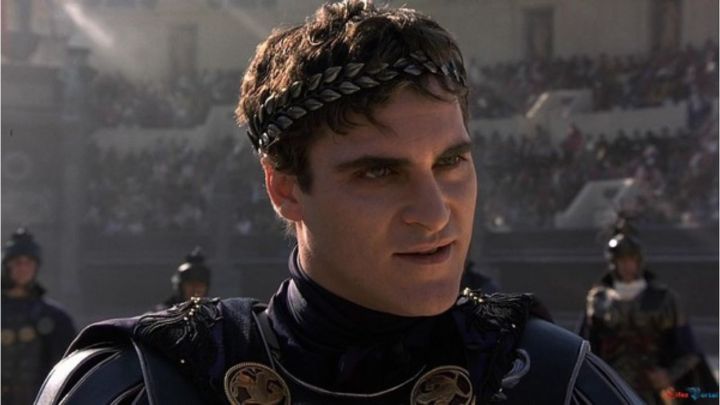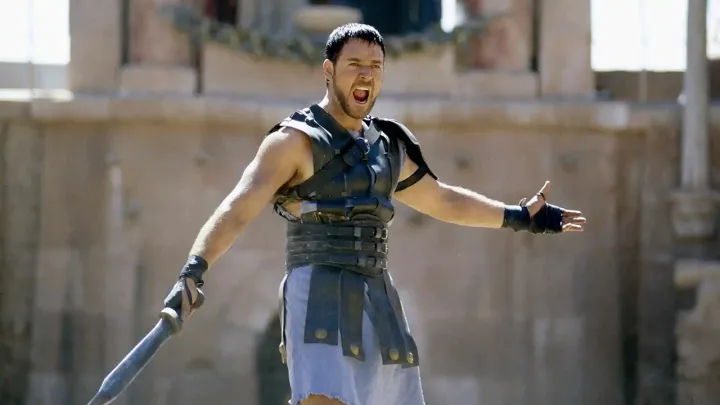Ridley Scott’s epic historical drama Gladiator remains one of the best films in his long and prestigious career. Russel Crowe stars as Maximus Decimus Meridius, a Roman general who earns the favor of the ailing emperor Marcus Aurelius. However, he is betrayed by the emperor’s jealous son, Commodus, who kills Marcus Aurelius and sizes the throne of Rome. After escaping arrest and discovering his family has been murdered by Commodus’ men, Maximus is sold into slavery, becoming a renowned gladiator in a quest to avenge his family and kill Commodus.
Gladiator won the Best Picture Oscar at the 2001 ceremony, with Crowe winning Best Actor. The film has aged like fine wine, with many considering it among the best of the 2000s. It successfully reinvented the sword-and-sandal genre and revitalized mainstream interest in ancient Greece and Rome. Moreover, it heavily influenced the historical genre in the new millennium, setting the standard for what was to come. Gladiator is back on Netflix in October, which, coupled with the already-announced sequel starring Oscar-nominee Paul Mescal, should be reason enough for fans to want to check out this timeless gem. And they should, for Gladiator is an epic, riveting, cathartic movie; there are plenty of reasons to watch it, but here are three that should be more than enough.
The stunning production values

Gladiator is not historically accurate — it heavily fictionalizes several real-life events and takes considerable dramatic liberties with its real-life figures, most notably Commodus. However, fans shouldn’t judge it as a history lesson but rather as a larger-than-life film meant to enthrall and challenge — and in that respect, Gladiator passes with flying colors.
The film also successfully paints a full picture of its time and place. It features lush and detailed production values that seamlessly recreate that 2nd century, from the beautiful, highly-detailed, Oscar-winning attires to the physical sets that grandiosely bring the Roman Empire to life. History buffs might take issue with Gladiator‘s narrative approach, but those looking to immerse themselves in the action will do it effortlessly, thanks to the film’s exuberant costumes, set design, and cinematography. Production values are a huge part of historical movies because they can either make or break the illusion; Gladiator succeeds in almost every level that counts.
Joaquin Phoenix is the movie’s true MVP

Russell Crowe might be the protagonist, but Joaquin Phoenix is Gladiator‘s true star. The Oscar-winner delivers a tour-de-force performance as the cowardly, insecure, and outright awful Commodus, almost stealing the film right from under Crowe’s nose. Phoenix delivers a captivating, broken portrayal of fragility, jealousy, lust, and ambition that is both compelling and off-putting.
Gladiator earned Phoenix his first Oscar nomination, and it’s easy to understand why; he is a stellar villain from beginning to end, acting as the antithesis to Crowe’s stoic, hunky Maximus. Phoenix embraces Commodus’ weaknesses, imbuing every scene he’s in with a genius mix of dread, pity, and misery. They say a hero is only as good as his villain, and Commodus proves it. He is a large reason for Gladiator‘s success, with fans loving to hate his incestuous, well-polished, deranged guts.
The rich and topical subtext

“Are you not entertained?” Maximus famously questions his audience after he single-handedly slaughters numerous opponents. The quote has become synonymous with Gladiator and one of modern cinema’s most famous lines; however, it carries more thematic weight than initially meets the eye. The film is a study of violence as a source of mindless entertainment and a cycle of taught, learned, and repeated offenses. Maximus’ quest for vengeance leads him to commit all manner of atrocities against untrained, terrified slaves, and he isn’t afraid to do it; however, he is also not blind to their fear and pain and the brutal, senseless cruelty exhibited at the arena.
Gladiator‘s bleak tone and famously bittersweet ending were divisive on its original release but are now widely celebrated. The film is a surprisingly effective mix of commercial and thought-provoking entertainment, presenting its ruminations on violence, masculinity, and revenge in a compelling, thrilling, and clever way that never becomes tiresome or obvious.
Gladiator is now streaming on Netflix.



